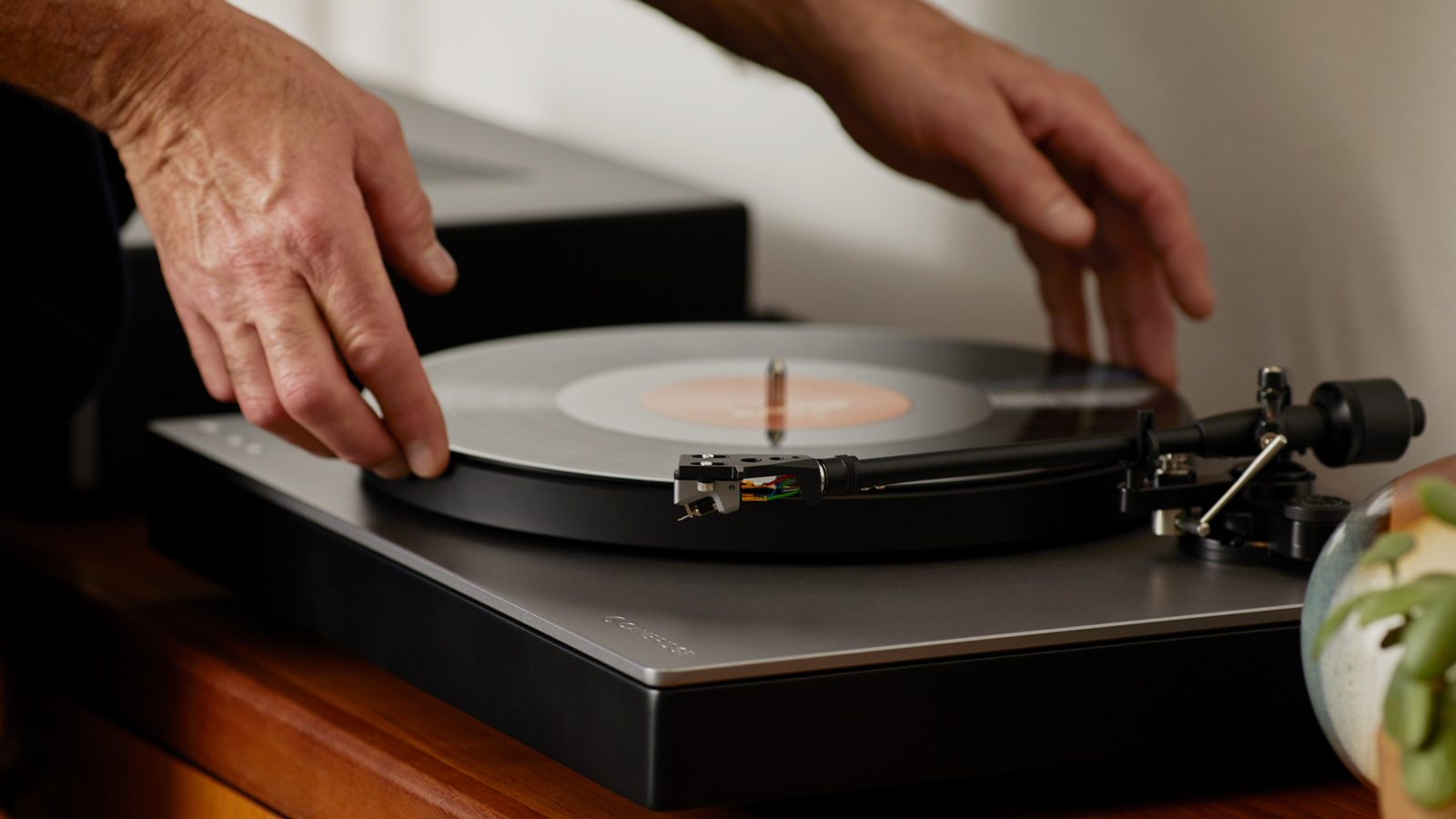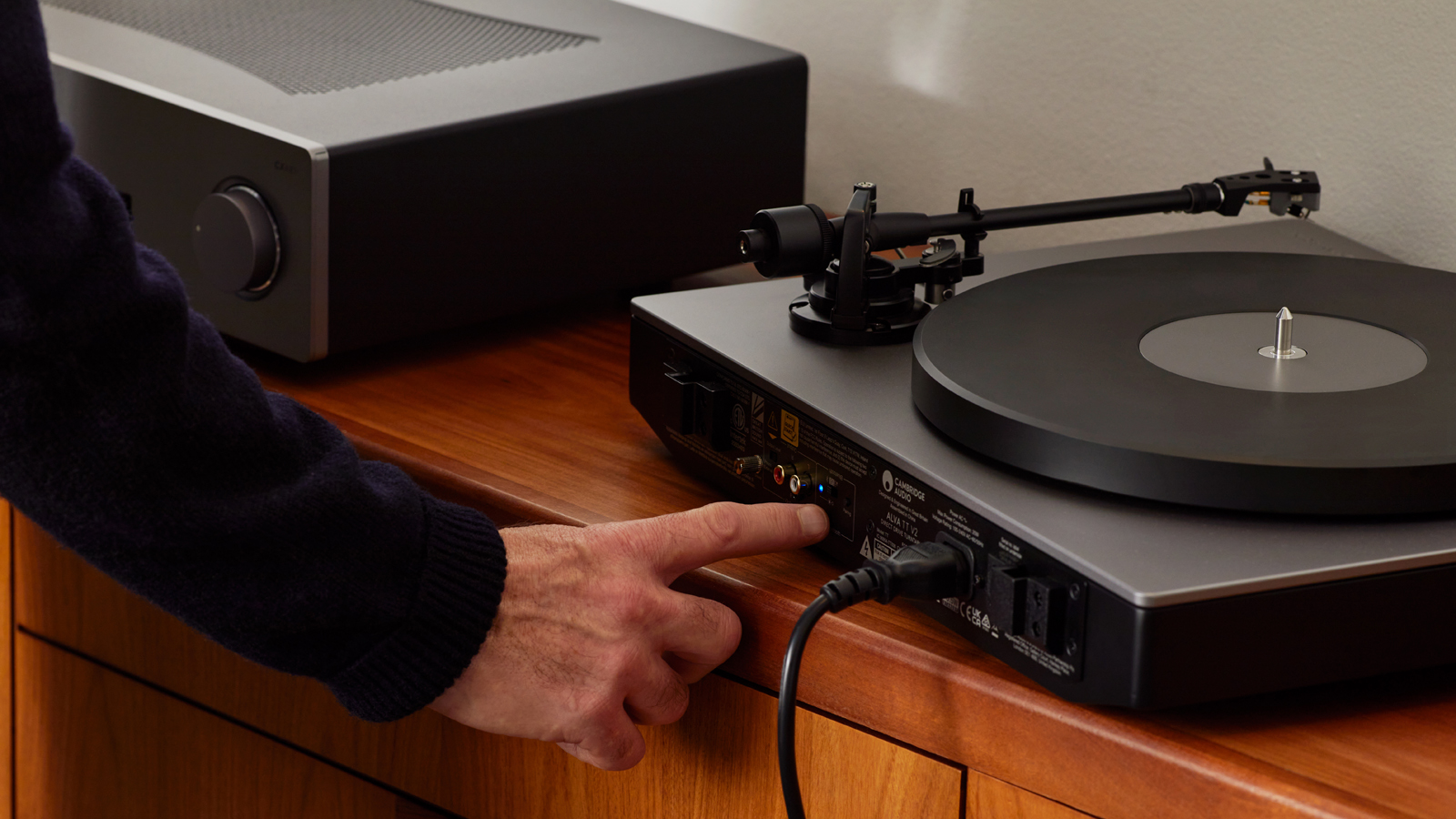The world’s first aptX HD Bluetooth record player has been reimagined for CES 2022
Cambridge Audio has refreshed the Alva TT turntable

Cambridge Audio lifted the lid on two brand-new turntables in its popular Alva range at CES 2022.
Following in the footsteps of the world’s first aptX HD wireless record player, the Cambridge Audio Alva TT, the Alva TT V2 and Alva ST are the latest models to be launched by the high-end audio company.
The Alva TT V2 is the more high-spec of the new record players. The direct-drive turntable retains its predecessor’s heavy aluminum top plate, polyoxymethylene platter and pre-installed Alva MC cartridge. Plus, there’s that all-important aptX HD support that allows for 24-bit/48kHZ hi-res streaming.
New features for the second-gen vinyl player include a tonearm that comes with a detachable headshell - so you can upgrade it over time - and a switchable phono stage. This gives you more flexibility in how you use the Alva TT V2 – with the option to use the phono stage from your existing stereo amplifier, for example, or try a different phono stage in the future.
You can now turn the Bluetooth transmitter off for a shortened signal path - Cambridge Audio says this leads to better sound and more energy efficiency.
If the new record player is anything like its predecessor, you can expect an excellent audio performance combined with a simple setup and a build that’s made to last - which is exactly what you’d want from a turntable that costs $1,999 / £1,700 (about AU$2,770).
Magnet or coil? It’s your choice

If that price is a little rich for your blood, Cambridge Audio is also releasing its first model under $1,000 - though not by much. Expect to pay $999 / £850 (about AU$1,400) for the Alva ST.
Sign up for breaking news, reviews, opinion, top tech deals, and more.
The Alva ST has many of the same features as its pricier sibling, including aptX HD wireless streaming, that detachable tonearm, and a switchable phono stage. However, it comes with a moving magnet cartridge rather than Cambridge Audio’s own moving coil cartridge.
For those not in the know, the cartridge is the little device that sits on the end of your record player’s tonearm. It contains the stylus (also known as the needle) that sits in the microgrooves in your vinyl. As the platter spins the record, vibrations travel through the stylus and into the cartridge, where the kinetic energy from the vibrations is converted into an electric signal. Feed this signal through a preamp or phono stage to your speakers and you have sound.
Moving coil cartridges tend to be lighter and faster to respond to the grooves in records than moving magnet cartridges, which means more accurate reproduction of the music and a wider frequency range. In other words, they let you hear every single detail of a song. So, for a dedicated audiophile, the Alva TT V2 is the turntable to choose out of these two new models.
The precision and expertise required to make moving coil cartridges means they’re usually more expensive than their magnet counterparts, so it’s no surprise that the Alva TT V2 is priced so highly.
Saying that, our pick for the best record player you can buy today, the $499 / £449 / AU$879 Pro-ject Debut Carbon Evo, uses an Ortofon 2M Red cartridge and that’s a moving magnet model. And yes, it still sounds sensational.
Whatever turntable you opt for, you’re in good company. Revenue from vinyl sales grew by 94% in the US in 2021, and there’s no sign that the vinyl revival will slow down in 2022 - especially if record players like these continue to offer audiophile specs combined with wireless streaming convenience.
- Check out all of TechRadar's CES 2022 coverage. We're bringing you all the breaking tech news and launches, everything from 8K TVs and foldable displays to new phones, laptops and smart home gadgets.

Olivia was previously TechRadar's Senior Editor - Home Entertainment, covering everything from headphones to TVs. Based in London, she's a popular music graduate who worked in the music industry before finding her calling in journalism. She's previously been interviewed on BBC Radio 5 Live on the subject of multi-room audio, chaired panel discussions on diversity in music festival lineups, and her bylines include T3, Stereoboard, What to Watch, Top Ten Reviews, Creative Bloq, and Croco Magazine. Olivia now has a career in PR.